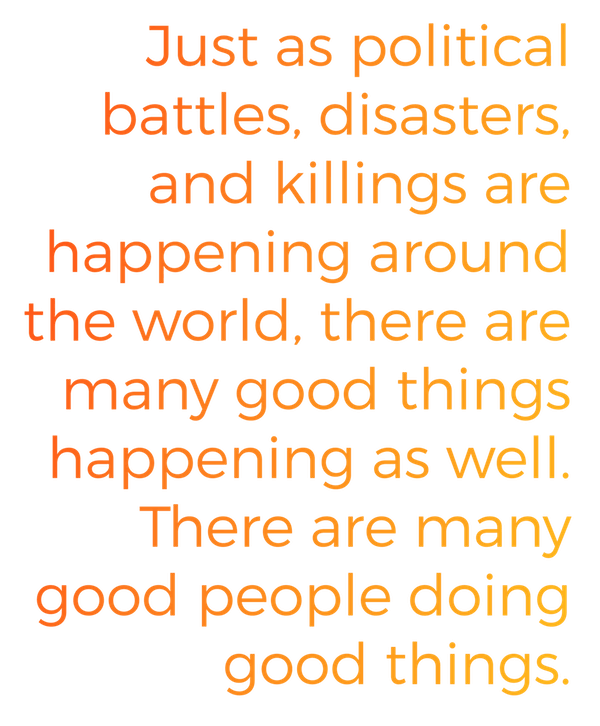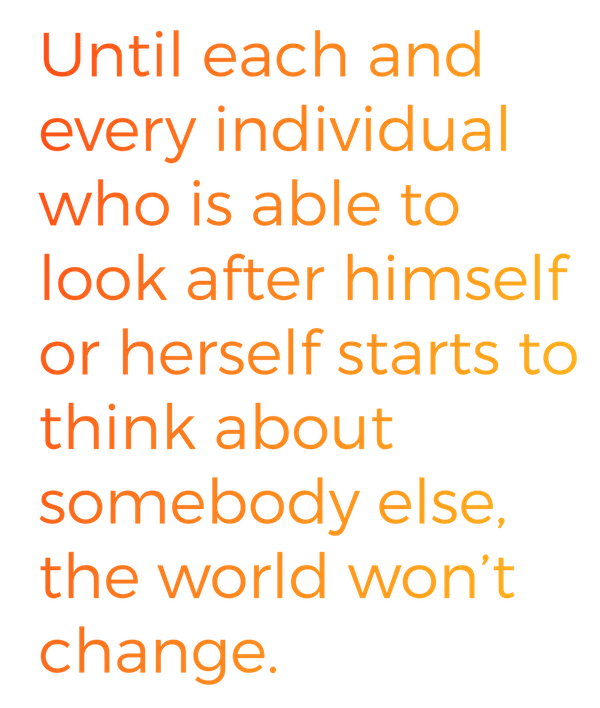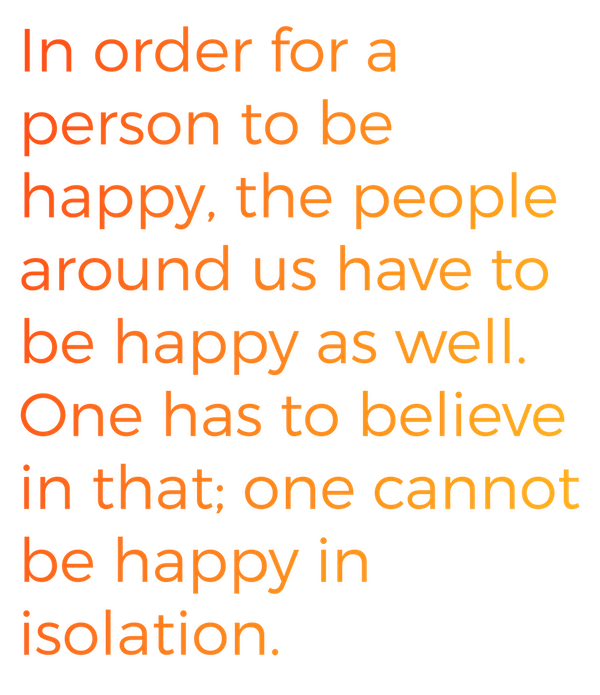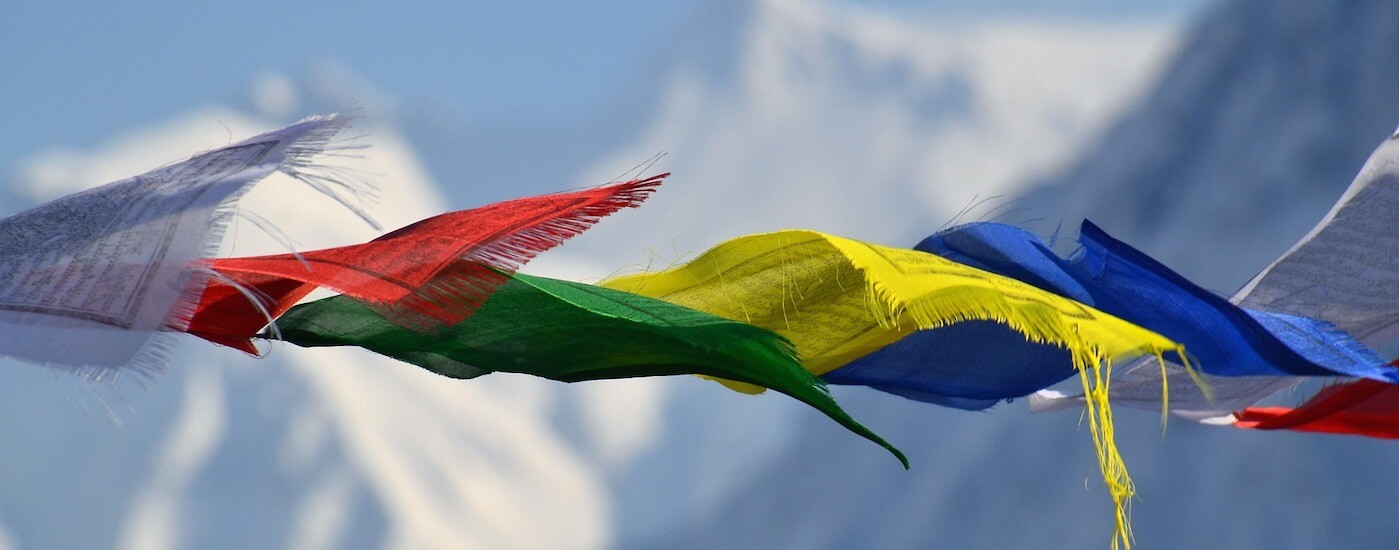THE CHALLENGE OF CREATING CHANGE
The following is the final installment in a three-part excerpt from One Person Acted and Everything Changed, a book that chronicles ten accounts of extraordinary people who risked everything to change the world.
 nyone charged with raising money for charity in a developed country understands the enormous challenges one faces. When an organization is new and unknown, it’s a steep and difficult road.
nyone charged with raising money for charity in a developed country understands the enormous challenges one faces. When an organization is new and unknown, it’s a steep and difficult road.
That’s the case even in countries where tax laws are designed to support the non-profit sector.
Those laws help create a culture of philanthropy, promoting the philosophy that society should take care of it’s own. In addition to government support, charities in such countries also rely on faith institutions, the media, the entertainment industry, and even peer pressure to encourage individuals and companies to donate money.
In Nepal, the exact opposite mindset prevails. No tax deductions are allowed for charitable giving. That means all motivation must come from the heart, not financial incentives. Even those who did wish to donate money readily assumed corruption, meaning Rabindra needed to change the popular belief from Those who give money to charities are naïve, to Those who give money can save our country.
Of the 3 million Nepalis who live outside its borders, 1.5 million work in the Gulf region, and are very poor. They sold their properties and traveled there to make money to support their children. Another 1.5 million Nepalis live in the West, and have relatively nice lives. These richer expatriates are the primary focus of his campaign. He pushes them to go beyond the $1 a month campaign if they can.
“I ask them, ‘Please, go back to your poor village where you grew up, and help just one child to get an education.’ If they did, 1.5 million children would get good educations, and this would help the country tremendously. These Nepali people abroad have seen quite clearly what poverty is. Most of them have experienced poverty in their own family. Somehow they, like myself, were fortunate.”

Rabindra has no trouble asking his fellow citizens to donate. “If you are fully confident, you can ask them to do this. If people don’t want to help with their own village and they have the money, it is probably them who should feel uncomfortable saying no, not me feeling uncomfortable asking them.”
Asking Nepali expats to donate to their home country succeeded far beyond Rabindra’s expectations. Though it has taken several years to build, the network now has chapters in fourteen countries, including Australia, Austria, Canada, Denmark, Ireland, Nepal, New Zealand, Qatar, Russia, Saudi Arabia, South Korea, Sweden, United Kingdom, and the United States.
Having seen the concept of corporate responsibility taking root in Western nations, Rabindra thought it would be wise to see if Nepali businesses were on the same path. His efforts were met with disappointment. He cites corporate responsibility in Nepal as being almost completely ineffective, because without a sense of personal responsibility among corporate employees, there can be no such thing as ‘corporate social responsibility.’ Regardless of how many zero’s you add together, the total remains zero.
“I tell these bankers that when people without a sense of personal responsibility sit around a nice table and talk about the importance of corporate social responsibility, it simply doesn’t work because the individuals personally don’t have that feeling. When they try to do or change something as an institution, it is only a gesture. It doesn’t actually change anything. It makes people feel like they tried to change something, and then they are free.”
Rather than waiting on corporate Nepal or any entity to develop a sense of giving, he found yet another to way to speed up progress.

When Rabindra attempted to resign from the BBC to return to Nepal and was instead offered the position as Editor of Nepal Service, he was elated to continue working in the field of journalism. There was more to it than providing an income. He began to see a way he could directly boost his goal to reconnect Nepali people to each other using journalism.
As Editor of the Nepali service, he manages the team, guides editorial aspects, and also continues to work as a journalist. In other words, he was perfectly positioned to reach the people of Nepal with an entirely new approach.
The BBC World Service has 27 language services around the world, and Nepali is one of the smallest. And yet, as Rabindra describes it, “The BBC has a huge impact in Nepal. We have 6 million regular listeners.”
“As I worked with BBC and other media, I came to the conclusion that the field of journalism had not been as active in public service as it could be, neither in Nepal nor anywhere around the world. Journalism is entirely focused on bad news; that is how we are groomed. From the morning, if you listen to CNN, BBC, Al Jazeera, The Guardian, Time Magazine, and so on, you see that journalism is all about conflict, disaster, political wrangling, regime change — all negative events. That is the dominant feature of journalism. And you ask yourself, has this changed the world for the better? Has it actually served the public, which is the core value of journalism? My conclusion was, ‘No, it had not.’”

Other journalists may counter that argument by listing the many ways they have helped promote democracy by holding authorities accountable, by exposing corruption, and by exposing all the negatives happening in society. However, Rabindra argues that by focusing on bad news 24 hours a day, journalism creates more negativity than it resolves.
“Just as political battles, disasters, and killings are happening around the world, there are many good things happening as well. There are many good people doing good things.”
So, in concert with the work he does through Help Nepal, Rabindra set out to change the fundamental understanding of what journalism does and what it can be. Given the enormous strength, power, and access that journalism holds, it can be a serious catalyst for change.

He’s not the first to broach the issue. In the 1970s, academics came up with the idea of developmental journalism. The idea was to bring attention to actual issues of development. That was a step forward. But others believed that that wasn’t enough. So in the 1990’s, another group of journalists came up with the idea of public journalism. The idea was to encourage journalists to share ideas of their concern. To some extent, this promoted debate on issues among the public, inviting discussion from the public. This was also progress.
However, as Rabindra saw it, the problem with both of these approaches was that they were bringing up new topics of discussion with the hope that some authority or brilliant philanthropist would take action. The journalist thought they had done their duty, but he sees it differently.
“We shouldn’t leave journalism at that point. Let’s say we take a photo of children who are forced to take classes outside under a tree because they have no classroom, which happens regularly. A journalist shows this photo, adding a couple lines that say: ‘If anyone is interested in helping build a school, they can contact the following’, and provide the name of the principal and give the school number. ‘The cost would be $5,000.’”
“Then someone may come forward and help that school. So my proposition is, don’t just raise the issue; show the way that the issue can be addressed. I call that action philanthropic journalism. Listen, if you can have sports journalism, if you can have political journalism, if you can environmental journalism, if you can have economic journalism, if you can have entertainment journalism, why can’t you have philanthropic journalism, whereby you actually try to resolve the real issues?”
So he took another bold step. He stopped writing his extremely popular political column and started writing a column focused solely on philanthropic journalism.
“I thought, OK, I write a political analysis and get a call from a politician telling me how great it was, as well as messages on Facebook and email saying it was a brilliant analysis. I realized that all the praise does not trigger things. It makes one feel good; makes one feel he is doing brilliantly. For me, it gave me public fame. I was invited onto TV and radio shows to give analysis about politics, I hobnobbed with famous people… and yet, I hadn’t really done anything using journalism to make tangible change.”
Surprisingly to Rabindra and others, people loved his new column. They told him they were so tired and fed up with the day-in, day-out side of politics. They found it very refreshing to read about how individuals were doing small things to help one another.
“Sometimes my articles show up on the front page. People began talking about philanthropy and charity. I began seeing a buzz. A change.”

 n Apr 25, 2015, a massive earthquake struck Nepal, followed by hundreds of aftershocks in the following days and weeks. All told, more than 8,500 people lost their lives and 23,000 were injured. By that time the Help Nepal Network was well developed and trusted — a significant accomplishment in itself. As a result, Help Nepal was able to raise more than 1 million USD to help the survivors. The money was used to mobilize teams of volunteers to reach areas that most charities couldn’t get to, and to provide tents, food, and medical supplies for the thousands of displaced.
n Apr 25, 2015, a massive earthquake struck Nepal, followed by hundreds of aftershocks in the following days and weeks. All told, more than 8,500 people lost their lives and 23,000 were injured. By that time the Help Nepal Network was well developed and trusted — a significant accomplishment in itself. As a result, Help Nepal was able to raise more than 1 million USD to help the survivors. The money was used to mobilize teams of volunteers to reach areas that most charities couldn’t get to, and to provide tents, food, and medical supplies for the thousands of displaced.

To date, Help Nepal has built or expanded more than 40 schools in villages across the country. They have established more than 40 libraries, constructed a large home for orphaned children, purchased thousands of computers and supplies for schools and libraries, opened blood transfusion centers, built multiple health centers, provided wheel chairs, stretchers and other medical supplies, sponsored dental, vision and hearing camps, rescued and aided hundreds of thousands of earthquake survivors, and much, much more.
“The world has developed so much. We have made incredible strides in technology, in academics, in science, in economics. But throughout the world, gaps between the rich and poor are increasing, environmental degradation is increasing, the sense of insecurity is increasing, and violence is increasing. So our generation, with all of our knowledge, and all of our economic achievements, must address this problem. Unless and until each and every individual who is able to look after himself or herself starts to think about somebody else, the world won’t change.”
Starting Help Nepal has impacted Rabindra in a very positive way. It gives him a sense of profound satisfaction and a deep sense of happiness, which his chosen profession alone could not provide.
“I try to practice and promote values that I uphold in my life. I am not a rich person, I am a middle class person, and whatever I have earned, the relatively comfortable life I am living—nothing gives me satisfaction like these two things I am doing with Help Nepal Network and philanthropic journalism. So yes, this work has changed me—it has changed my kids. And they see what I am accomplishing in Nepal, and that impacts them positively.”

For a person to succeed in making change, especially the scale of change Rabindra and his colleagues have accomplished, he believes three things are necessary.
“First, find peace with your inherent greed. It so easy to appreciate the value of doing so — but so difficult to follow. It is easy to praise good people, but it is difficult to be good yourself.
“Second, one has to believe that in order for a person to be happy, the people around us have to be happy as well. One has to believe in that; one cannot be happy in isolation.
“Third, persevere. Many people want to change things, but they lose their perseverance when it gets tough, and they start to make excuses. Because it can, and does, get tough. I hear people say they wanted to do things, they tried, but people didn’t listen and didn’t care about it. It was so difficult. They had to go to the government offices, they couldn’t get what they needed…all kinds of excuses. But that is precisely why you have to do it. If there weren’t challenges the problem wouldn’t be there for you to fix. It is difficult and it’s why people often let obstacles take over. But you have to tear those obstacles apart.”

Rabindra believes every individual who has enough ability and resources to look after his or her own family can do a great deal to change their own society and the world.
“The examples we give to our children are that they have to own things, they have to be rich, they have to be famous. Not many teach that you have to be successful, but you have to be a good human being as well. One hardly hears this, so most people are running after fame and fortune until their last breath.
“I will continue to do what I am doing as I am happy and fortunate, especially compared to the hundreds of thousands of people in Nepal who find it difficult to simply survive. There is nothing for me to complain about. I am at peace in my life.”
As for the people of Nepal, while they continue to face new hardships brought on by the devastating earthquakes, along with entrenched poverty, corruption, and many of the problems they had when Help Nepal started over fifteen years ago, there are significant differences. Hundreds of orphans now have a safe place to call home. Thousands more students attend schools in actual buildings. Tens of thousands more Nepalis have access to medical care. Educational achievements are growing. Untold numbers have been rescued, fed, housed, and cared for after their villages were destroyed by earthquakes.
The most significant change is not measured by statistics, nor will it ever be. Rather, it shows up in the smile of strangers when they meet on the street. It is revealed in the gratefulness of a widow kept alive by her neighbor’s generosity. It is found in the joy of a donor who writes a check to a charity, confident the money will reach its intended destination. It shows up as renewed pride in the voice of a Nepali expat living overseas, as he or she states proudly, “Yes, I come from Nepal.”
Closer to home, it shows up in the eyes of Rabindra’s children, grateful to be living in the home of their ancestors, eager to be part of Nepal’s rebirth, proud to be the children of a man who wouldn’t accept the demise of his country, but who continues to give his heart and soul to restore it to glory.





